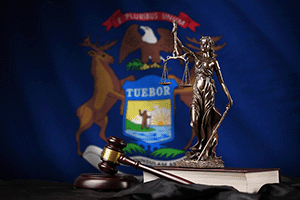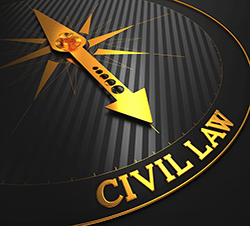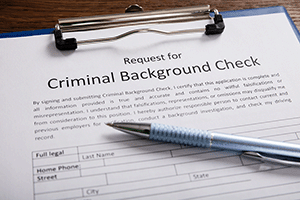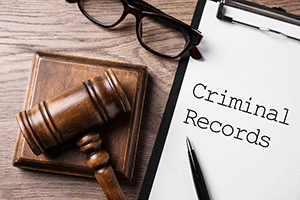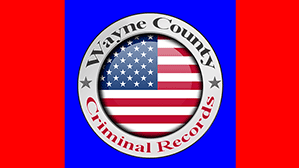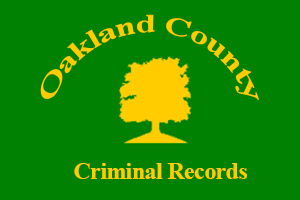Michigan Criminal Records Search
Understanding the intricacies of Michigan criminal records can be a complex task. These records, public in nature, offer a wealth of information about a person's character and encounters with the criminal justice system. These records can be resource by anyone with an internet connection.
There are multiple online options to access these publicly available records. You can run a Michigan court case search directly from the MI Court Website, County Courthouse websites, or from various Third-Party Public Record Sites. All you need to begin your quest is the name of the person you want to research.
The Legal Landscape of Michigan Criminal Court Records
Michigan criminal records are governed by a set of state and federal laws. The state's legal framework and court system dictates how records are maintained, accessed, and can be used. This is the basis for Michigan's criminal justice system which protects and enforces state and federals laws. This also dictates the responsibilities of law enforcement agencies.
Since a criminal record is determined by a court conviction, running a Michigan criminal court record search is a good first option. You can run a Michigan Court Case Search through the state run court website, or the relevant county where that person was convicted. A good example of this is if you want to lookup someone's Oakland County Michigan Court Records. Accessing these court case records can be done by visiting the Oakland County Courthouse website, as well as the MI State Court Website.
You will typically find more information by going directly to the county where the case was heard. But, if you are uncertain where the court case was heard, then searching on the state level will be your best option.
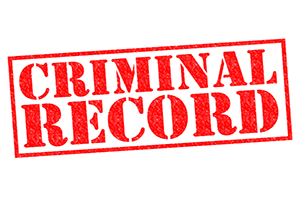
Accessing Criminal Records Through the State Police
The MI State Police also an important role in maintaining state records. They maintain a comprehensive database of MI criminal records, ensuring their accuracy and accessibility. You can run an official Michigan criminal background checks with this resource for a fee.
The State Police offers public access to run a name based background check, or a fingerprint background check. The fingerprint background check is typically used for official purposes and security clearances, where a biometric is required for identity verification. These records will include a full index of a person's criminal past including; MI criminal court case records, convictions, sentencings, criminal history, incarcerations, traffic tickets, active warrants, probation and parole orders.
Here are the steps to access records through the MI State Police Internet Criminal History Access Tool (ICHAT):
1). Visit the ICHAT website.
2). Register for an account.
3). Pay the required fee.
4). Enter the individual's full name and date of birth.
5). Review the search results.
Accessing Michigan Criminal Records Through Third-Party Sites
Third-Party Public Record Websites have become very popular for access Michigan public criminal records. These resources give information about a person's past. This includes criminal and civil records, vital records, driving records, and vehicle records. They are typically more comprehensive and are used mostly for unofficial purposes.
One of the benefits of using these types of online resources is you can run unlimited reports and have anonymity when searching. These are good resources for people wanting to do research on a friend, family member, co-worker, or neighbor. They are quick and inexpensive resources that are relatively easy to navigate.
Top 10 Criminal Charges in Michigan
The state's criminal justice system handles a wide array of offenses. Certain criminal charges are more prevalent than others. These top 10 charges offer a snapshot of the state's crime landscape.
1). Drug-related offenses
2). Assault and battery
3). Theft and burglary
4). Driving under the influence
5). Fraud and white-collar crimes
6). Domestic violence
7). Weapons charges
8). Sex offenses
9). Homicide
10). Probation violations
Drug-related offenses top the list, reflecting substance abuse with controlled substances and illegal drugs. Assault and battery, theft, and DUI charges are also common, that reflects a broader societal issues. White-collar crimes, such as fraud and embezzlement, are also fairly prevalent. These are merely the top most common charges in the state, according to a 2022 MI State Police Report. There are a multitude of other offenses that did not make the top 10 list.
Public Access to Michigan Criminal Records
Most all Michigan criminal records are public documents. This means that anyone can access them, with some records being subject to restrictions. The Freedom of Information Act (FOIA) is what gives public access to these records, ensuring transparency in the state's justice system.
However, public access to these records is sometimes restricted. Certain sensitive information, such as juvenile records and sealed cases, are not publicly available. This is to balance the public's right to know while protecting sensitive information.
Despite these few restrictions, public access to these records has become utilitarian for many. It aids in background checks, research, personal investigations, and legal proceedings. It can also be used to help keep communities safer by having access to this information.
Michigan Expungement and Second Chances
Expungement offers a path to a second chance for people with a criminal past. This legal process can erase certain convictions from public records, opening up new opportunities for those affected. However, not all crimes are eligible for expungement, and this process is often complex. It usually requires legal assistance from an attorney, and a thorough understanding of state laws. Despite these obvious challenges, expungement of a Michigan criminal record gives people a chance at rehabilitation and social reintegration.
Are Criminal Records Public in Michigan?
Yes, they are part of the public records system. This essentially means that anyone can view another person's criminal history without needing to ask permission. These records are posted on various government and privately run databases that allow general access by the public. They will show up on a background check and can have long lasting implications that can affect employment opportunities, traveling outside the United States, and security clearances.
